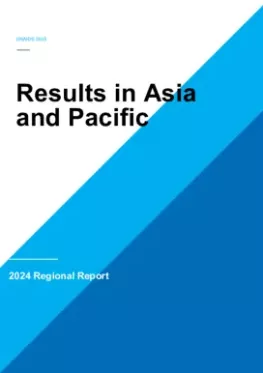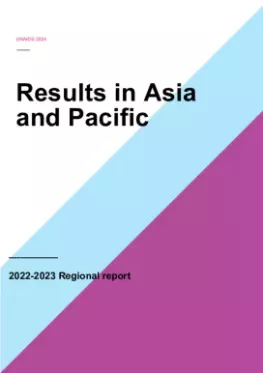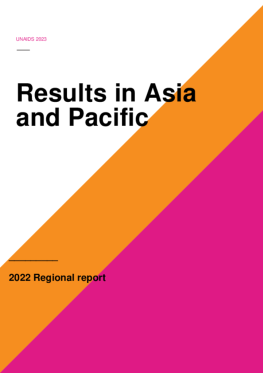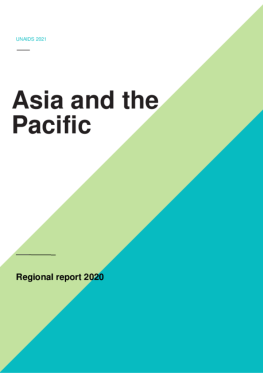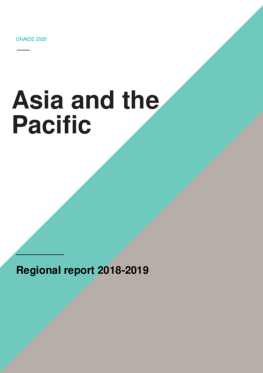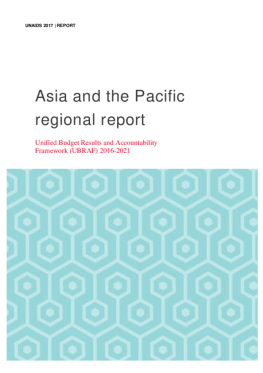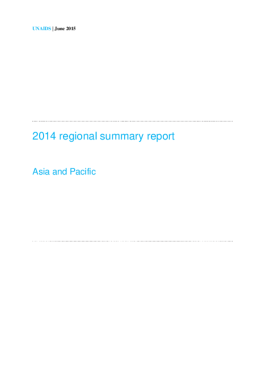In 2024, with support from the Joint Programme, the Asia and Pacific region made significant strides in expanding HIV prevention and treatment services. Building on past achievements, the Joint Programme’s support for the region focused on working with governments and communities to advance differentiated HIV prevention strategies, including pre-exposure prophylaxis (PrEP) and dapivarine vaginal ring as well as advancing access to harm reduction services for people who use drugs. Eleven countries developed HIV prevention action plans, and a new Asia-Pacific HIV Prevention Task Force now coordinates, guides and monitors progress. The region saw an increase in PrEP coverage enabled by community-led approaches, research and updated guidelines. HIV testing, including self-testing, also saw a significant boost with more people able to know their HIV status. Eighteen countries included HIV self-testing in their testing guidelines or developed new country specific guidelines for HIV self-testing. More than 15 countries also adapted the virtual interventions approach to improve access to HIV services, including some with guidelines or standard operating procedures.
Asia and Pacific
By the end of 2024, the region completed the regional roadmap for Triple elimination of mother-to-child transmission of HIV, hepatitis B and Syphilis with progress achieved in some countries such as nine provinces of China passing the subnational elimination of vertical transmission validation exercise. Thanks to the Joint Programme’s advocacy, programmes to eliminate vertical transmission of HIV are integrated into maternal and child health programmes in 13 countries.
The Joint Programme supported the region to set off a chain of results in harm reduction and sexual and mental health services for people who use drugs through the region's first Chemsex toolkit for healthcare providers. Key populations and people living with HIV were further empowered through new regional media network and community paralegal support to reduce HIV-related stigma and discrimination. Networks and organizations of women living with HIV and women in key populations were supported and accessing decision-making spaces in the HIV response. Multiple initiatives and innovations, including using social media, helped reach more young people at risk of HIV. Additionally, national action plans to integrate community-led HIV monitoring and adopt digital solutions were developed.
Efforts to ensure the sustainability of HIV responses also intensified. Six countries began developing sustainability roadmaps. Several community-led or civil society organizations secured local government budget allocations, signalling growing local resource mobilization through social contracting. Additional resources were mobilized to support communities and governments in improving HIV testing and treatment, reducing stigma and discrimination, and lowering HIV transmission. The Joint Programme played a key role in guiding, coordinating and streamlining effective implementation of Global Fund to Fight AIDS, TB and Malaria and U.S. President's Emergency Plan for AIDS Relief (PEPFAR) grants and other partners’ support. A total of US$ 698 million was mobilized from the Global Fund for HIV response in 15 countries for 2023–2025. The Joint Programme also supported other initiatives for affordable access to HIV commodities for all and mor sustainable HIV response such as recommendations on local production initiatives in other low-income countries.


